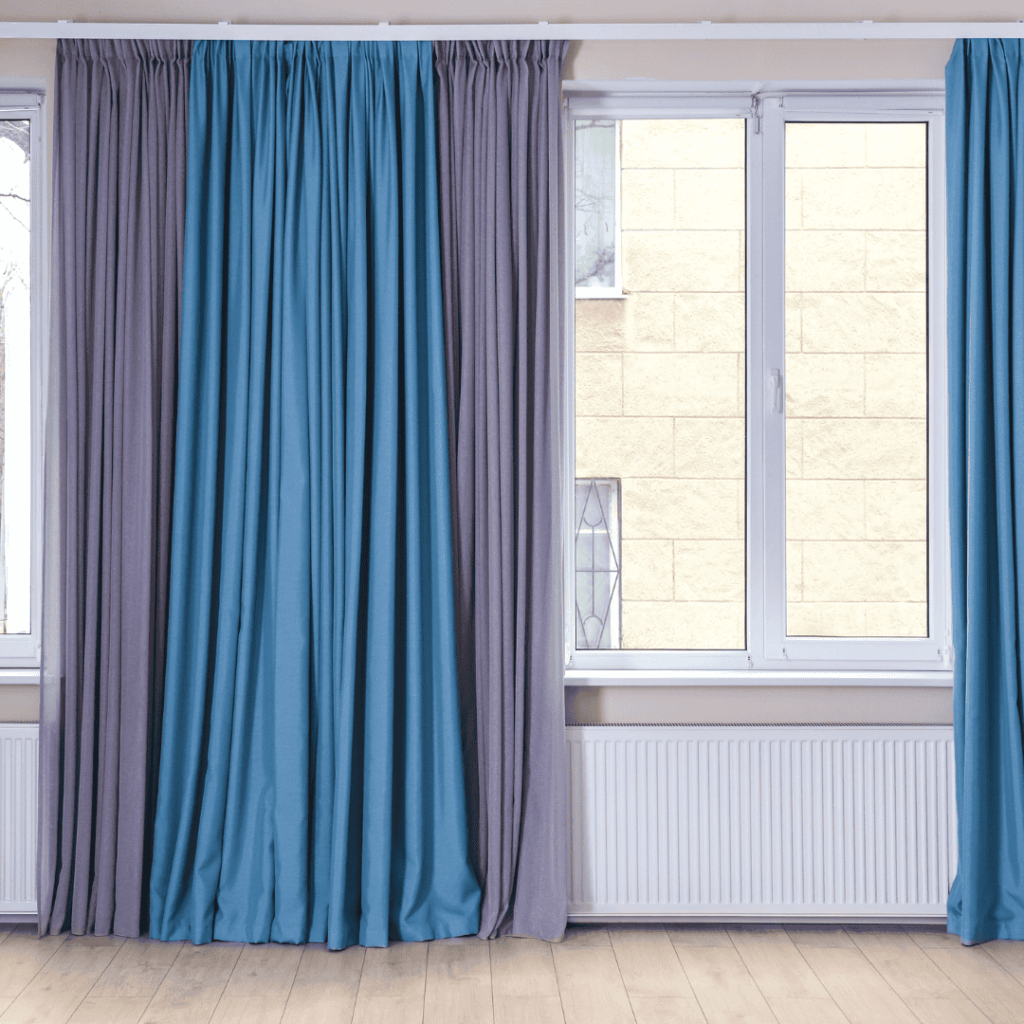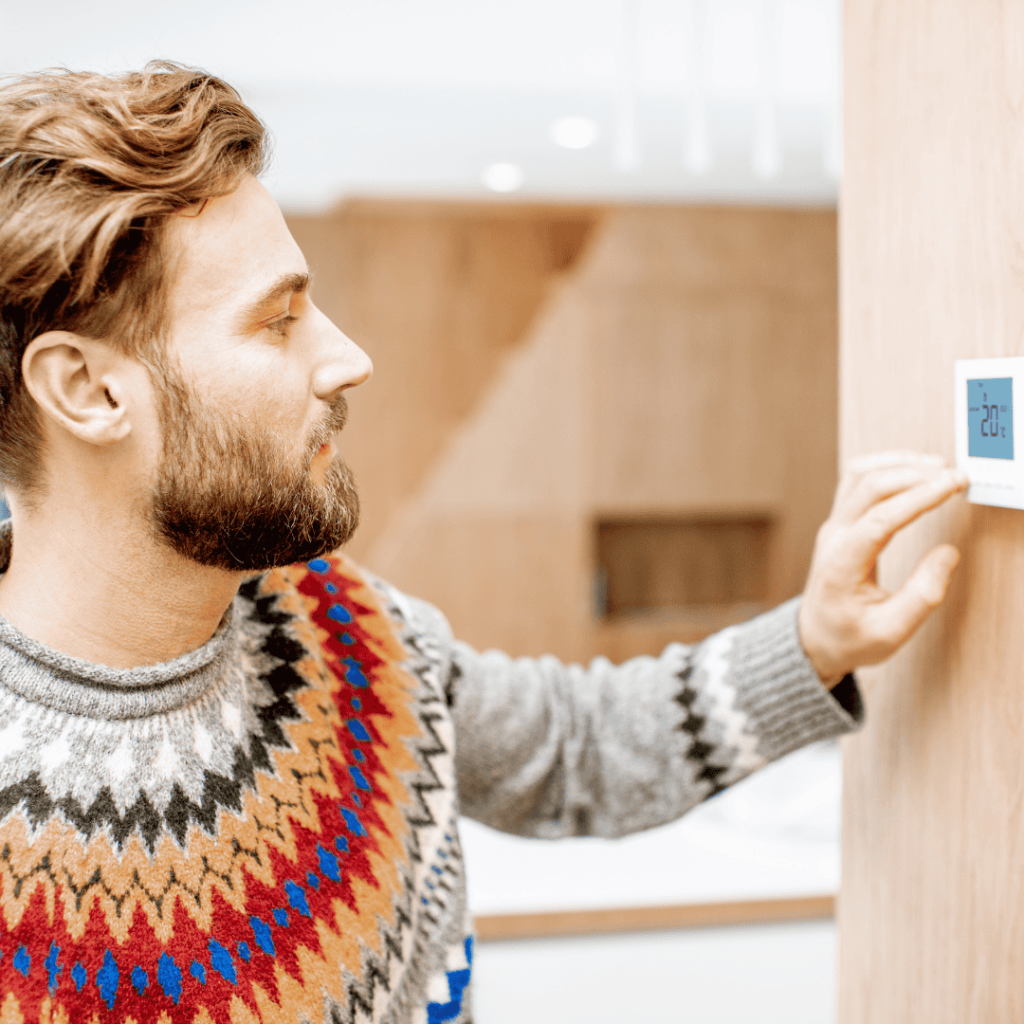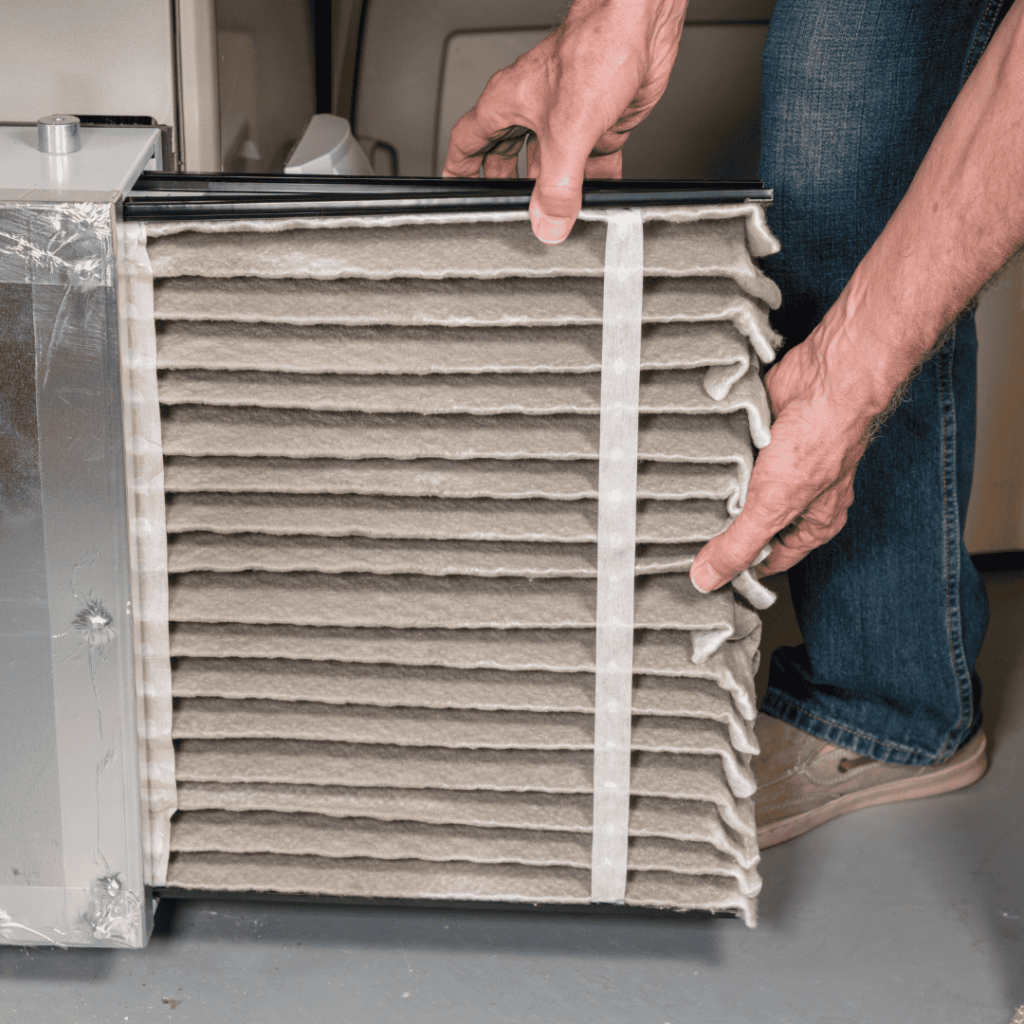Tips for Lowering Your Home Heating Costs for Winter in 2024

With winter temperatures dropping in Alabama, it's time to start thinking about how you can keep your home warm and cozy without breaking the bank. Here in Huntsville, Alabama, we have an average daily high of 53°F during December and 51°F during January. Not exactly fun and can start to really cost you if you're trying to keep the house warm.
Fortunately, there are some tips for lowering your home heating costs during winter that will help you keep your energy bills low while still keeping your house comfortable during the cold season.
Let's get right into it and talk about some of the best ways to reduce your home heating costs this winter
Tip 1: Take Advantage of Natural Insulation from Windows and Doors
One of the most effective and cost-efficient ways to keep your home warm during cold weather is to take advantage of the natural insulation provided by windows and doors.
When carefully chosen and installed, these components can help to block out drafts and keep the interior temperature consistent.
Windows that are manufactured with low-e coatings can cost a little bit more upfront, but can easily save you a ton of money over time. They can help by reducing energy loss by as much as 30% to 50%. With such a high percentage, this can make a huge difference in your home heating costs.
It's important that windows fit securely in their frames, as even small gaps can lead to significant heat loss. Make sure that the window frame has a good seal between it and the wall, so warm air does not escape.
Consider adding additional insulation materials like caulk or foam tape around the edges for an extra layer of protection. Additionally, use thick curtains over your windows during colder weather, they act like an extra barrier against chilly outdoor temperatures.
Doors are also key players in providing natural insulation. Always choose reinforced doors with weather seals on all four sides, this will block out drafts and keep temperatures inside more stable.
Finally, consider upgrading your existing windows and doors if they're too old or damaged to offer proper insulation.
Investing in high-quality products designed to resist extreme temperatures may be expensive upfront, but can result in long-term savings from reduced energy costs and improved comfort levels throughout your home.

Tip 2: Adopt Good Habits to Conserve Energy and Lower Your Bills
One of the most important things you can do during the cold winter months is to practice good habits in order to conserve energy costs. There are many simple, cost-effective ways to ensure that your heating bills stay low throughout the season.
Keep Doors & Windows Closed
Keep doors and windows closed as much as possible. Make sure that all gaps and drafts are sealed tightly by using caulk or weatherstripping around windows and door frames, making sure that no heat escapes from your house.
Program The Thermostat
Use a programmable thermostat that allows you to set a temperature for when you’re home, as well as one for when you’re away or asleep.
This way you won’t have to worry about running up your heating bills by having the temperature too high when nobody is at home.
Furthermore, schedule regular maintenance for your furnace or other heating equipment to make sure it is running properly and efficiently at all times.
Unplug What You're Not Using
Unplugging all appliances when they're not in use is another way to save on energy costs during this season. Even when they’re off, electronics still draw some power, which adds up on your utility bill over time.
It's also recommended that you replace any old light bulbs with LED bulbs, which are more efficient and last much longer than traditional light bulbs.
Wash Your Clothes With Cold Water
Whenever possible, wash your clothes and linens in cold water. Even when the temperature outside is cold, washing your clothes with hot water can use up a lot of energy, driving up your bills significantly.
Dress Appropriately
Finally, dress appropriately for the season. By wearing layers of warm clothing, you can avoid having to crank up your thermostat and running up energy costs.

Tip 3: Find Ways To Minimize Heat Loss in Your Home
Other key ways to reduce heat loss in your home include adding additional insulation in attics, basements, and walls; insulating hot water pipes; using draft stoppers at the base of exterior doors; and making sure that heating ducts are properly sealed.
In addition to these measures, it is also important to ensure that any exhaust fans installed in bathrooms or kitchens are vented directly outside rather than into attics or crawl spaces which can lead to significant issues such as moisture buildup.
Be sure to regularly check for air leaks throughout your home, particularly around vents and wall outlets. Any drafts found should be promptly addressed by sealing with caulk or foam sealant.
Tip 4: Use The Thermostat Correctly
Using your thermostat correctly is also essential for saving energy during the winter. Setting it too low temperatures at night or when no one is home can significantly reduce heating costs.
If you have a programmable model, you can set it to automatically turn down while you’re away and then turn up just before you arrive home.
When it comes to temperature settings, the lower the temperature, the higher the savings. Typically the ideal thermostat temperature during the winter months is 68 degrees according to Energy.gov. By simply turning your thermostat down 7-10 degrees 8 hours a day, you can save as much as 10% in heating costs a year.

Tip 5: Consider Investing In Newer, More Efficient Technology
Newer technology is continually being developed to reduce energy usage throughout homes. Replacing your furnace can not only can it help you save on heating costs, but also improve the overall efficiency of your home.
We've already mentioned this once, but consider investing in a smart thermostat that allows you to control the temperature remotely with your computer or smartphone.
These devices are designed to learn your habits and adjust the temperature accordingly so that you don't have to worry about it.
Finally, take advantage of any local rebate programs offered by utilities or government agencies that offer incentives for making energy-efficient upgrades to older equipment. Doing so can help offset some of the costs associated with replacing outdated appliances and technologies.
Tip 6: Utilize Natural Heat Throughout The House
A simple and easy way to lower your home heating costs for winter is by just taking advantage of natural heat.
Solar heating is an excellent way to save money in the winter months by capturing and utilizing the sun's heat energy. Consider installing a solar hot water heater or investing in a thermal blanket that can be wrapped around your existing hot water tanks to retain heat longer.
In addition, consider adding more plants and trees around the outside of your home as they act as natural insulation, helping keep temperatures warm during cold days.
Keeping blinds or curtains open during the day will also help allow more sunshine into the house and make it feel cozy while keeping them closed at night will keep warm air trapped inside.

Tip 7: Seek Out Professional Help for Optimizing Your Heating System
If you're looking to save money on your heating costs during the winter, seeking out professional help for optimizing your heating system is a great first step. Hiring an experienced local HVAC technician can help ensure that your heating system is operating at peak efficiency and that you're getting the most out of each energy dollar.
Professionals can perform a variety of diagnostics, and maintenance. and tune-ups for your furnace to improve the performance of your heating system. They can inspect and service boilers, furnaces, heat pumps, geothermal systems, or other types of home heating systems to ensure their peak performance.
In some cases, an HVAC technician might recommend adding insulation to hot water pipes or installing weather stripping on doors and windows to reduce heat loss from drafts.
They may also suggest upgrading older systems with newer ENERGY STAR-rated models that offer higher efficiency ratings than their non-certified counterparts.
By taking advantage of these types of services offered by experienced HVAC technicians you can save money on your monthly energy bills while reducing the amount of emissions released into the environment. With careful maintenance and thoughtful upgrades to existing equipment, you’ll be able to enjoy a comfortable home this winter without spending a fortune on utilities.

Conclusion: Simple Steps to Keep You Cozy Without Breaking the Bank
You don’t have to spend a fortune in order to keep your home comfortable during the winter months. By following these seven tips, you can save money on heating costs and still stay cozy and warm.
Investing in newer technology such as smart thermostats, utilizing natural heat sources such as solar energy, improving insulation and weather stripping, and seeking out professional help for optimizing your heating system can all help reduce the amount of energy used while keeping your home comfortable at the same time.
With careful consideration of your needs and budget, you’ll be able to enjoy a warm winter without breaking the bank on utilities.
If you have questions about how to save money on heating costs during the winter or need a local HVAC company in Alabama, give us a call today!

